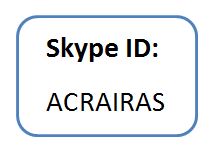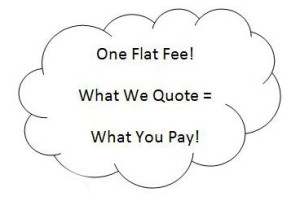A General Do-It-Yourself Guide on How to File your Singapore Company’s Tax Return
It is mandatory for all companies to file their yearly tax returns with the Inland Revenue Authority of Singapore. This is a brief guide on how you can file your Company’s Tax Return in Singapore.
Step 1: Know How to Prepare Tax Return for Companies in Singapore
Tax returns can be prepared manually or with the help of tax preparation software. Manual preparation requires calculating of the taxable income on paper and submitting it to the IRAS. This method is not preferred nowadays due to its high risk of errors.
You may also prepare and file your tax returns online using tax preparation software. The software assists you in calculating taxable profit by making the necessary adjustments to the accounting profits. After you have made the computations, you may then file your tax returns online using the IRAS portal otherwise known as e-filing. Alternatively you may send the documents manually to IRAS.
You can use the basic tax calculator to calculate your taxable income. The calculator helps you in making adjustments to your accounting profit to arrive at the taxable profit. You are also able to deal with schedules such as capital allowances and rental income schedules. The calculator can also be used in filling form C or form C-S.
Tax preparation for corporations is crucial when filing your company’s tax returns. You should make sure that you calculate your taxable income from your accounting income by making the necessary adjustments. In case you feel the task is too much for you and you may want to focus your energies on running the business, you may choose to hire professional Singapore tax consultant to do your tax preparation for tax returns purpose.
Need J Accounting Services to do it for you?
Step 2: Know How to Calculate Singapore Corporate Tax
You will need to make adjustments to your net profit to arrive at your company’s taxable income. This is because some of the expenses that a company incurs are not tax deductible while some of the income is not taxable. Also some income may need to be taxed separately.
All non taxable income should be deducted from the net profit. The income includes capital gains, sale of fixed assets, gains on foreign exchange on capital transactions and other income exempt from tax.
Expenses that are not tax deductible are depreciation, fines, write -off of fixed assets, private expenses and income tax among others. These expenses are added to the net profit while calculating taxable income.
You may decide to use the Basic Corporate Tax Calculator to calculate the tax payable. It is easier to use it than calculating the tax payable manually.
You can engage us to do it all for you
Step 3: Know How to Reduce Corporate Tax in Singapore via proper Tax Planning
A company can use a number of strategies to reduce the amount of tax that it should pay. One of them is the establishment of a business in an area with tax rebates and subsidies. This means that the company will pay less taxes than it should have paid had it been established in an area with no tax subsidies.
Did you know that there are many tax incentives that a company in Singapore can take advantage of to reduce tax liability? You can delay claiming the capital allowance for wear and tear of some assets until a later period when you would like to reduce the amount of tax that is payable.
If your company is likely to surpass the S$300,000 profits by a small margin, you may choose to postpone some income generating transactions for that period to later periods, for instance by not invoicing some year-end sales until the next year. You can delay the income generation activity to the next financial year. This can be done for example, by billing your clients for the service rendered at a later date. This will prevent you from being taxed at 17% but at an approximate effective tax rate of less than 8.5%, and so you will minimize the amount of tax that you will pay.
A company may also change the location of the business to take advantage of favorable corporate taxes. For instance you can establish a business in Singapore where capital gains and sale of fixed assets are not taxed and the country has a low corporate tax rate. This can save you a lot of money unlike if your business is in a country where capital gains and proceeds from sale of fixes assets are taxed.
The amount of taxes that you had saved could be used for business operations expenses. All this can be achieved with proper tax planning implemented by tax specialist at J Accounting Services.
You can seek Tax Planning Advice from J Accounting Services
Step 4: File your Singapore Company Tax Return
You are required to file your tax returns for your company each year. The filing returns comprise form C, form IRIN 301, tax computation statement (together with supporting schedules) and the audited or unaudited financial accounts. In case your company is small in size and nature, you are only required to file form C-S and the rest of the documents you will file and submit them upon request from IRAS. The due date for filing form C is 30 November while for form C-S, it is 15 December.




